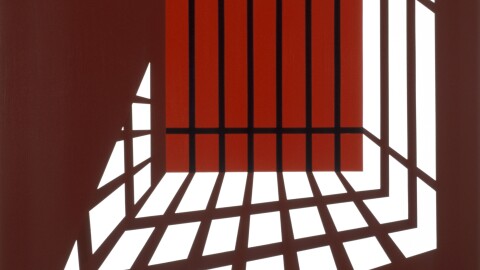While a new report calls the state's cash bail system "unfair" to poor defendants, both the Ohio Bail Agents Association and the ACLU of Ohio disagree with a plan to reform the system – for very different reasons.
State Reps. Jonathan Dever and Tim Ginther introduced a bill in the Ohio House, HB 439, that would reform the jail system by basing bail on a person’s risk to society rather than how much money they have.
A report released Monday by the conservative Buckeye Institute said requiring defendants to put up cash in order to gain pretrial release discriminates against the poor while letting those with money get out. The report called for a wide-scale reduction of cash bail.
But Charles Miller, president of the Ohio Bail Agents Association, says Ohio law gives judges the freedom to set a low bail for indigent defendants, or even no bail at all.
Miller said he agrees in principle that a person's wealth shouldn't determine whether they get pretrial release.
"[If] the judge or the system says, 'Hey, this person is truly indigent and can't afford bail and is nonviolent,' then so be it," he said Tuesday.
However, Miller disagreed with the report's assertion that cash bail is unfair and that courts should stop using it. Cash bail, he said, is a cost-effective way for courts to ensure defendants show up for trial.
Moreover, Miller said, the alternatives recommended in the Buckeye report—which include individual screening, data collection, counseling and monitoring—would cost courts tens of thousands of dollars to administer.
"If we're going to try to do this in 88 counties, how are we going to afford this?" he said.
Some reformers say those alternatives would actually save courts money in the long run, because they'd spend less on jailing people accused of low-level crimes. The ACLU, however, has issues with the Ohio House bill.
“It could just bless the disparities that are already going on,” said Mike Brickner, senior policy director for the ACLU of Ohio.
Brickner says, for example, people who fail to appear in court for past offenses earn a higher risk assessment.
“When you look at the number of fail-to-appears, you’ll see more people of color, more low-income people skewing that number,” he said.
Brickner suggests having a list of lower level crimes that are pre-determined to not require bail, unless a prosecutor argues otherwise.
In Ohio, various jurisdictions are already reforming their bail and pretrial procedures. Late last year, Cleveland Municipal Court announced it planned to use an algorithm called the "Public Safety Assessment" to determine whether a given defendant would be a risk to the public if released pending trial.
Currently, some municipal courts in Cuyahoga County are considering piloting new pretrial bail procedures.
Such reforms, wrote the authors of a March 2017 report by the Ohio Criminal Sentencing Commission, "will, over time, result in cost savings to the justice system and result in a pretrial justice system that maintains due process and equal protection while ensuring public safety and court appearances."
Editor's note: An earlier version of this article incorrectly stated that the Cuyahoga County Court of Common Pleas planned to test new bail reform procedures. Bail reforms are being considered by some municipal courts in the county, but not the Court of Common Pleas.





